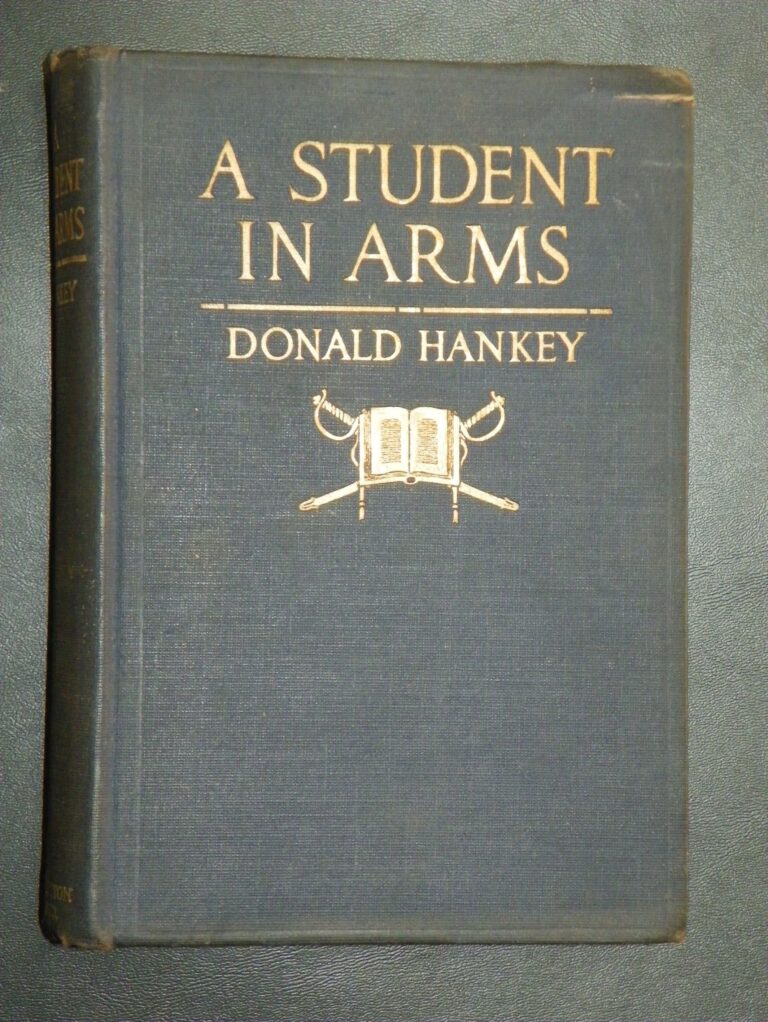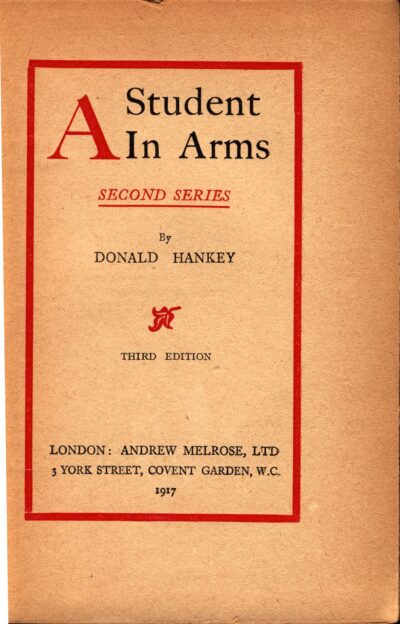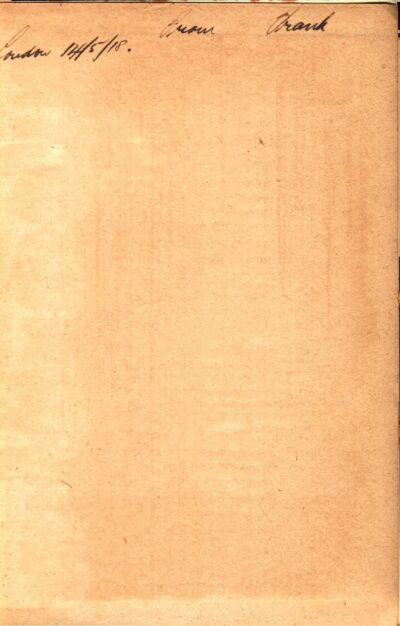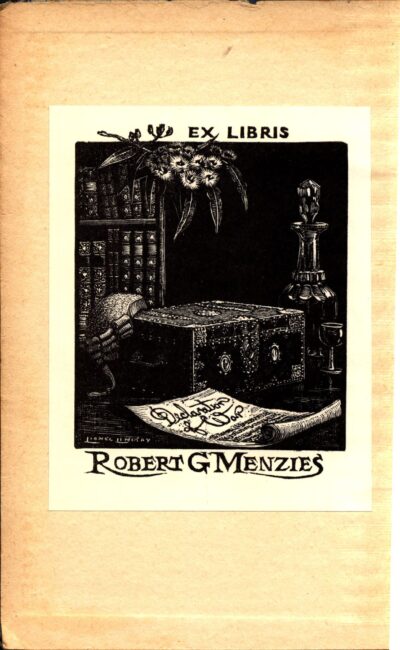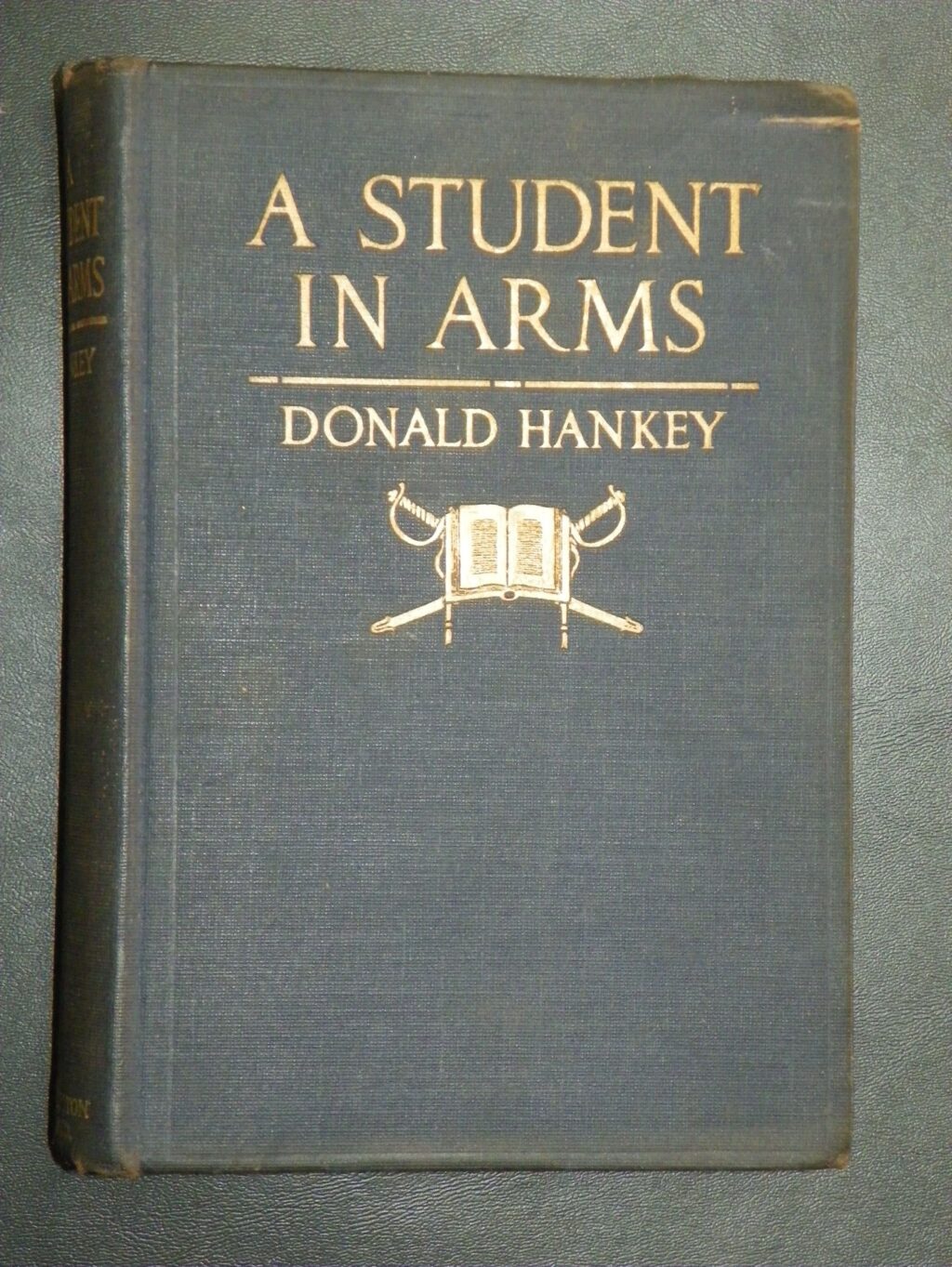Donald Hankey, A Student in Arms, 1917
Donald Hankey was a British soldier who was killed during the Battle of the Somme in October 1916. Born in Sussex England in 1884, his family had a strong connection to Australia where they had made a fortune growing wool. It was this fortune which funded Hankey being sent to the prestigious Rugby School and then the Royal Military Academy, though his military career was cut short by ill-health in 1906. Instead, Hankey decided to adopt a life of faith and train to be a clergyman, leading to a significant amount of study, travel around Africa, Mauritius and Australia, and some attempts at both theological and journalistic writing.
When the First World War broke out, Hankey felt compelled to enlist as a simple private, but his military training and the needs of the Army saw him rapidly rise in the ranks, all the while being heavily involved in the action. A Student in Arms is a series of essays reflecting on his experiences in the British Armed Forces, originally published as a tremendously popular column in The Spectator Magazine. They offer a unique insight into how soldiers met their common ordeal in the trenches, avoiding the jingoistic heroism of those propagandising the war, but at the same time remaining stoic rather than pessimistic about what was occurring.
This perspective grew darker as the war wore on, and some of Hankey’s later essays were rejected by The Spectator’s editor. After Hankey’s death, his writings inherently became more poignant, particularly as Hankey is believed to be buried in a mass grave with some 70,000 compatriots who also died at the Somme.
Robert Menzies owned two copies of A Student in Arms, but by far the more fascinating one is inscribed ‘From Frank, London 14/5/18’. This was a gift from Robert’s brother Frank, who was then serving in the Great War, and it shines a light on what was a complex and anguishing conundrum in Robert’s life. The Menzies family had made a collective decision to allow the older brothers to go to war but to keep Robert at home. However, at a time when so many members of Robert’s generation were sacrificing their lives for King and Country, this was a difficult decision to explain publicly and it would haunt him for his entire career.
We can only speculate as to what Frank’s intent was in gifting this copy. Perhaps he was trying to let his brother know what the soldier’s experience had felt like and how difficult it had been. Frank had performed ‘regimental and staff duties’ on the Western Front, during which time he had suffered from a poison gas attack in March 1918. There was a great emotional and cultural barrier between this experience and that of the Home Front, one that was at times impossible to bridge. We can likewise only speculate as to what Robert must have felt when he received this gift, but one imagines there was significant sentimental weight behind it.
You might also like...
Sign up to our newsletter
Sign up for our monthly newsletter to hear the latest news and receive information about upcoming events.

